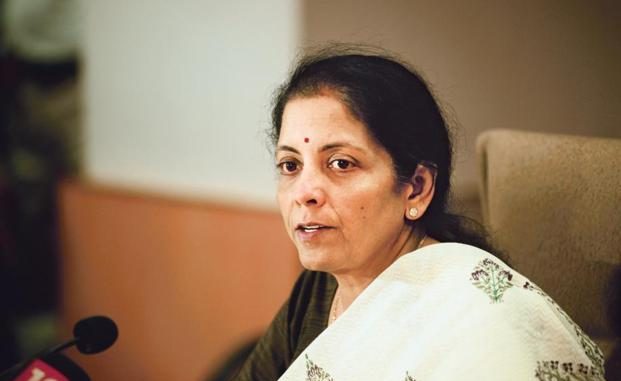
Geneva: India has raised the bar on the need for a permanent solution on public stockholding programmes for food security, safeguard mechanism for curbing unforeseen surges in import of farm products, further work on reducing trade-distorting domestic support in agriculture by industrialized nations, and trade facilitation in services, according to people familiar with the development. These issues are on the list of deliverables for the World Trade Organization (WTO)’s 11th ministerial meeting in Buenos Aires next year.
At a mini-ministerial summit of select trade ministers from more than two dozen countries in Oslo on Saturday, commerce minister Nirmala Sitharaman demanded a permanent solution for public stockholding programmes for food security at Buenos Aires. She called for accelerating work on other outstanding Doha Development Round issues, including special safeguard mechanism for curbing sudden surges in imports of agricultural products, and improvements in special and differential flexibilities.
On new issues such as rules for e-commerce and small and medium enterprises, which are at the core trade agenda for the US, EU, and other major industrialized and some developing countries, India along with a majority of developing countries cautioned that these issues cannot run ahead of the unresolved Doha issues.
Trade ministers from the US, EU, China, India, Brazil, Australia, Japan, Canada, New Zealand, Switzerland, Indonesia, South Korea, Singapore, Hong Kong, South Africa, Rwanda, Benin, Kenya, Mexico, Chile and Costa Rica, among others, attended the meeting and provided respo-nses to questions in four sessions that lasted till Saturday.
India’s tough stance for including the PSH (public stockholding programmes for food security) on the agenda for Buenos Aires was supported by China, Indonesia, South Korea, Kenya, South Africa, Morocco on behalf of the African countries, Benin on behalf of the least-developed countries, and Rwanda, which represented the Africa, Caribbean, and Pacific countries, the trade envoy said.
India’s demand for continuing work on special safeguard mechanism (SSM) was shared by Indonesia and other developing countries. Attempts to push the PSH and SSM to a future work programme beyond 2017, as suggested in a concept paper issued by Norway prior to the meeting, were rebuffed, the envoy said.
“In Nairobi, we (ministers) agreed work on issues and ministerial decisions of special interest for developing countries (including the decisions on domestic support, public stockholding for food security purposes, a special safeguard mechanism, and cotton), will remain important elements of WTO’s future agenda,” the concept paper argued.
In the run-up to the WTO’s 10th ministerial conference in Nairobi last year, the US along with major industrialized and some developing countries, including Pakistan, had raised numerous hurdles to finalize the permanent solution.
During the talks on reducing trade-distorting domestic support in agriculture, which was a major priority for many participants, India underscored the need for continued progress, implying that the developed nations who are required to reduce their domestic support as per the Doha mandate, must undertake credible commitments, according to another envoy who asked not to be named.
But the US, which is one of the major subsidizing nations, suggested that it will discuss the issue only after countries such as China and India make commensurate contributions.
China flatly opposed making any contribution on trade-distorting domestic support without the US’s commitment to reduce its most trade-distorting trade support in the amber box.
India also underscored the need for an outcome on trade facilitation in services, a demand that was supported by several developing countries. Many countries asked India to spell out the concrete issues that it seeks to address as part of the trade facilitation in services before deciding the issue one way or other, a trade envoy from a major industrialized country said.
India said it is prepared to work on fisheries subsidies based special and differential treatment flexibilities given the dependence of millions of people on fisheries. Many trade ministers who took part in the meeting said an outcome on fisheries subsidies is essential at Buenos Aires. However, China said it will address fisheries subsidies only when other issues of the Doha rules dossier such as improvements in trade remedies like anti-dumping are addressed.
Source: Livemint

Leave a Reply